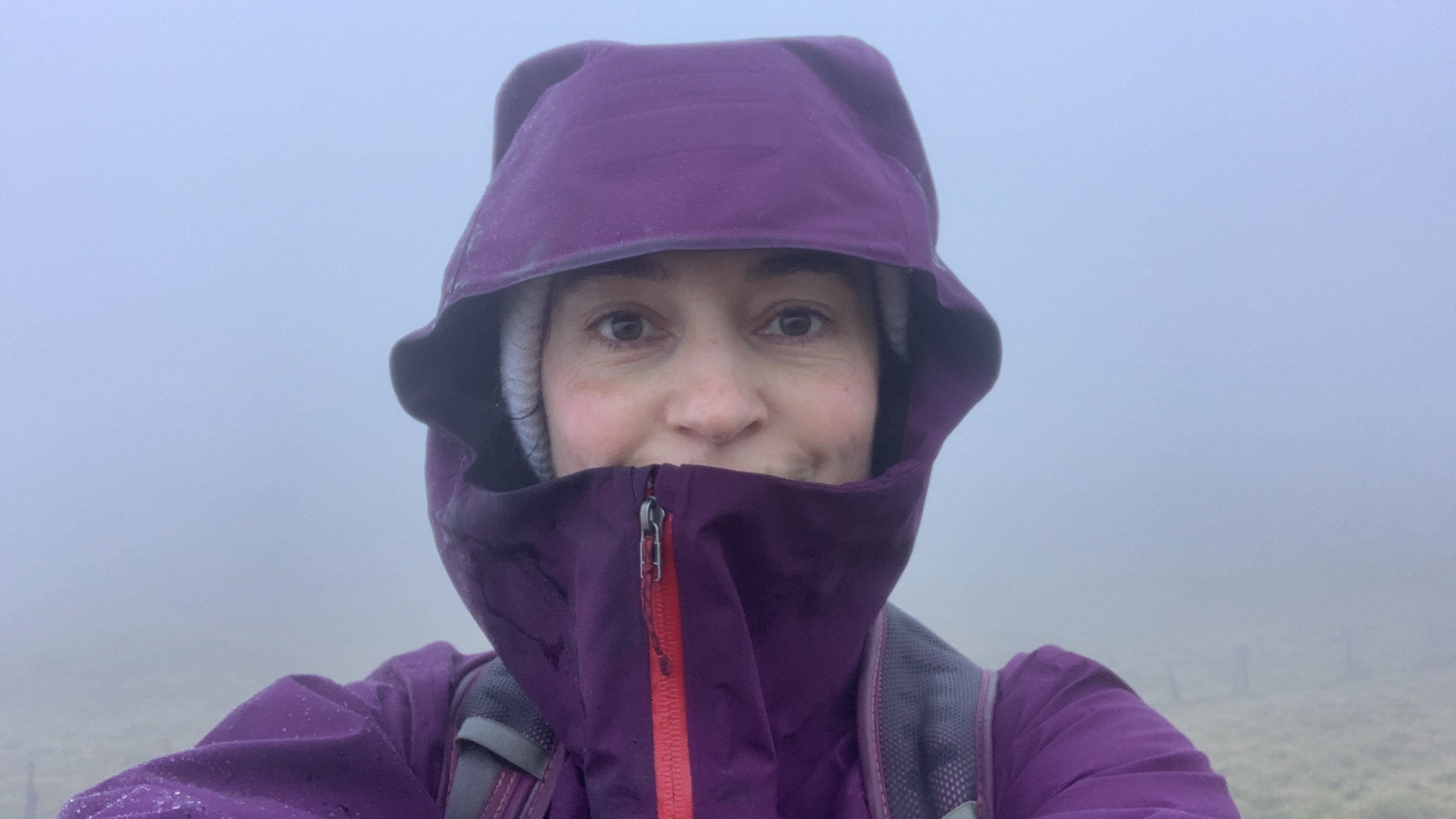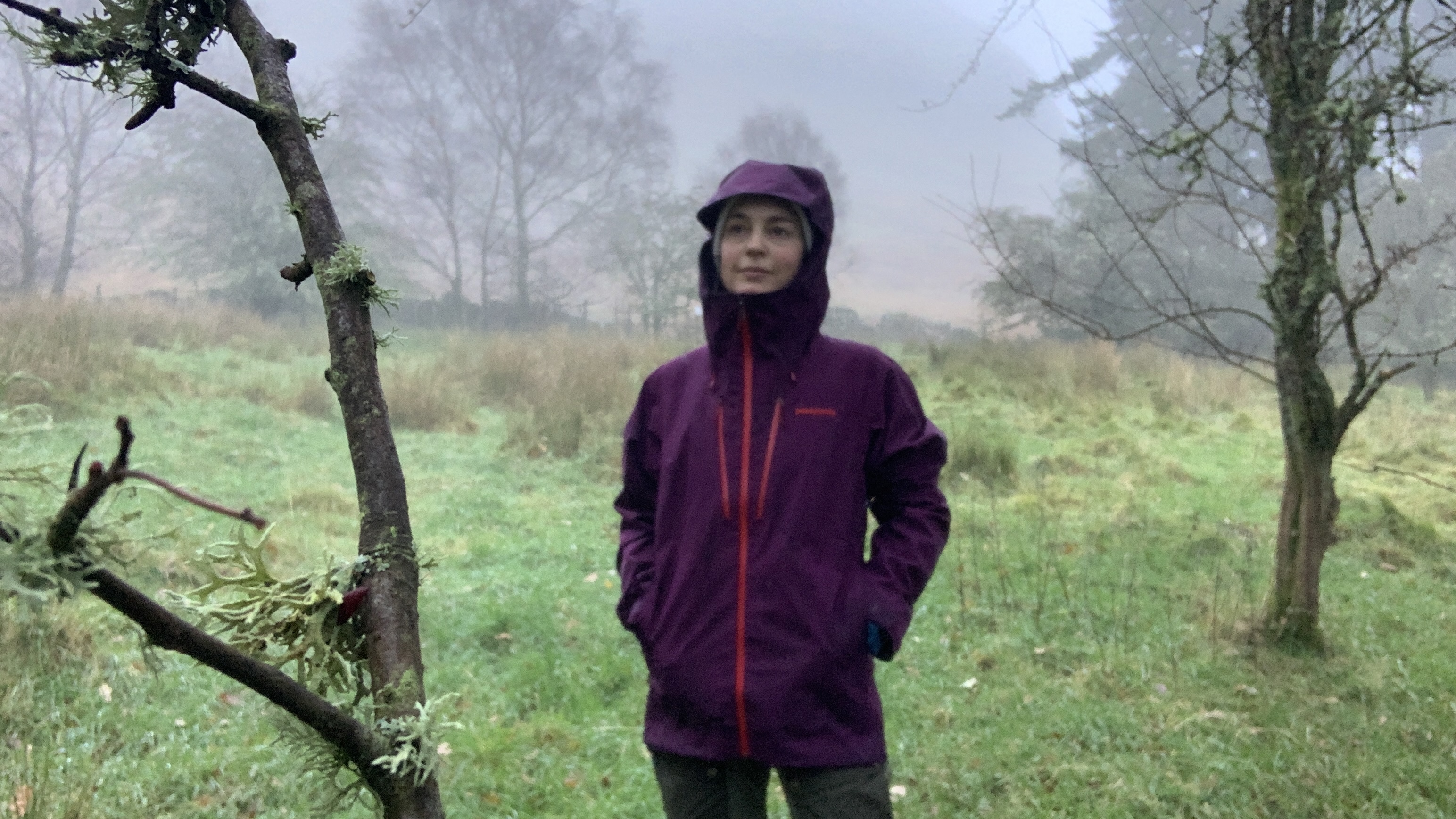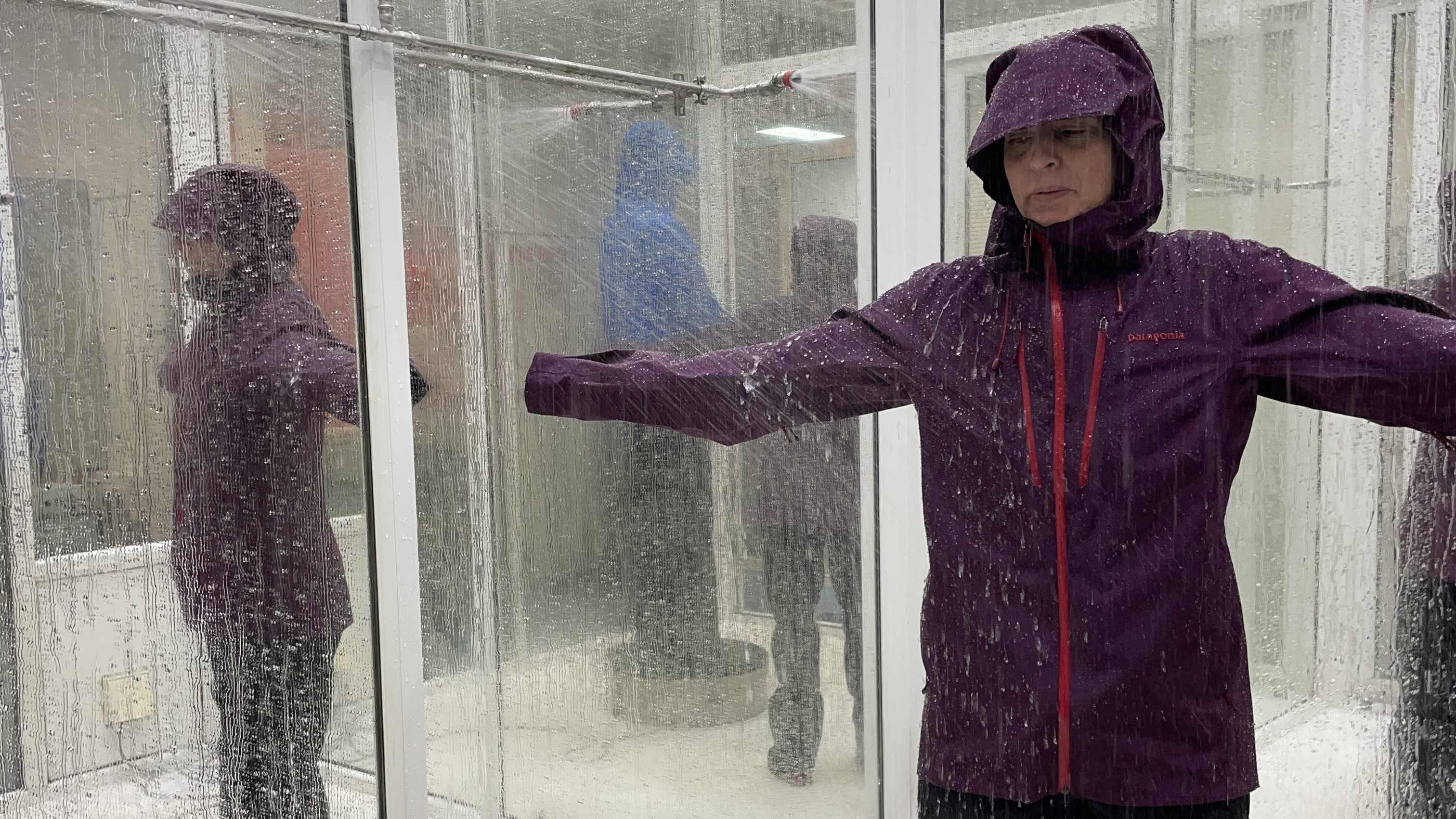Advnture Verdict
This waterproof shell pulls no punches when it comes to warding off the wet weather, and it has great eco creds to boot
Pros
- +
PFC-free membrane and DWR
- +
Taped seams
- +
Waterproof zippers
- +
Plenty of pockets
- +
Epic adjustable peaked hood
- +
Pit zips
- +
Built in RECCO reflector
Cons
- -
A little heavy
- -
Not for warmer weather
- -
Runs a little large
- -
No two-way zip
- -
Pricey
You can trust Advnture
Patagonia Triolet Jacket: first impressions
If you’re a Patagonia fan, you’ll already be familiar with this waterproof jacket, but it’s back for this season with an exciting update – if you’re Planet Earth, that is. This hardworking shell jacket is one of the first Patagonia garments to be made using the new PFC-free GORE-TEX waterproof fabric and DWR finish, meaning your wet weather protection doesn’t leave such a big footprint on the planet during production. It’s all made using 100 percent recycled polyester and is Bluesign-approved.
The design is enhanced with taped seams, waterproof zippers, low-wicking barriers and zipper garages plus a giant peaked hood which all worked together to keep out the rain when we tested this in the hills as well as in GORE-TEX’s rain tower.
• List price: $449 / £390
• Gender specification: Men’s and women’s sizing available
• Sizes: XS - XXL
• Weight: 470g / 16.6 oz (women’s small)
• Materials: 100% recycled polyester
• Colors: Black, Night Plu, Touring Red, Lagom Blue
• Best use: Hiking
When you’re out on a mountain, this sturdy shell isn’t the lightest in the waterproof pack, and like any really waterproof garment there’s a limit to it’s breathability, so if you’re working up a sweat it’s really better suited for cold weather conditions than as a summer backup jacket. The cut is definitely a little on the roomy side which works for layering, though you might want to size down to make sure it's functional. We found in our tests that a heavy rain could actually get down the collar.
It boasts two roomy zipped hand warming pockets plus a chest pocket all ample for stashing gear, and a hidden mesh inner pocket. Unzip at the pits if you need to dump some heat and cinch the hood snugly if it’s windy and you can stay pretty comfortable in this jacket for cold adventures. It’s not cheap, but it’s a reliable force against moisture and with care it could be your forever shell with a classic look.
Patagonia Triolet Jacket: in the field

I’ve been testing this jacket out for the past month on a few adventures, from a rainy family walking holiday in the Galloway Forest Park to some Scottish Munros, but perhaps most excitingly, I actually got to take it to GORE-TEX’s facilities in Scotland to wear it in their Rain Tower. The Rain Tower is where they test and approve gear and I made sure they turned it up to storm level to really put this jacket through its paces.
Here’s how it performed:
Sizing and fit
I am usually a size small and that’s what I tested and I’d say this jacket does run quite large. Obviously, for a shell like this that’s built for cold weather, you want room to layer it over potentially bulky fleeces, but the issue with it being a bit too big is that, when I didn’t cinch it all down properly, some water went down the collar. This was partly user error of course, but I do think sizing down might be a good idea as there’s definitely awkward bulging of excess material otherwise.
All the latest inspiration, tips and guides to help you plan your next Advnture!
One place where this bulging could also be an issue is with the hood. It’s giant, and designed to be helmet-compatible, but that also means when I cinch it there are gaps around my ears where a sideways rain could penetrate.

Waterproofing and breathability
When I took this jacket to GORE-TEX, one of their team members walked me through all the details that make this jacket waterproof: membrane, DWR, taped seams, zip garages, storm flap, low-wicking barrier and peaked hood. It’s all there and when I had the team turn the moisture up to Storm level, it did hold up (I also wore it out on a rainy hike yesterday to test it in real conditions). The only issues with waterproofing are those that I’ve mentioned – if it’s too large.
All truly waterproof garments are going to have limited breathability, but yesterday I wore this up a steep grade hike in very cold conditions. I could never not sweat on this particular hike, and I did find that I needed to unzip my pit zips, but once I did that I remained comfortable (I had a light fleece and a wool base layer underneath) even when I headed downhill. For a hardy shell, I'd say it’s surprisingly breathable.
Weight and packability
This jacket is definitely on the heavy side and though I wouldn’t go so far as to say it’s bulky, the peaked hood certainly adds volume. Given the design, I’d be more likely to wear this for cold excursions than I would roll it up and stash it in my backpack during the summer months.
Storage and other features
This jacket is basically pocket heaven, with roomy zipped hand warming pockets, a large chest pocket and an inner mesh pocket. You’ll never run out of room to store gear here and there’s always a pocket you can reach when your backpack is on.
The jacket also has a built in RECCO reflector to add safety value if you're wearing it for snowy adventures in the backcountry, but beyond that the special features are really a lot of waterproofing. A two-way zipper would be nice but other than that I can't think of anything to add.

Versatility and value
This jacket works for hiking and I could see myself wearing it for skiing too, if I didn’t already have a lifelong commitment to my Helly Hansen Elevation Infinity 2.0 Ski Shell Jacket. However, it’s not really suitable for milder conditions and too baggy for biking and running so it’s not the most versatile or the most activity-specific jacket I’ve met.
It’s not cheap and I wouldn’t expect it to be now I know how much work has gone into making it. I also don’t know that you should expect a really good piece of outdoor gear to be cheap and have a theory that if we pay more upfront, we’re more likely to keep our gear in good condition and out of the landfill. It’s very robust, so it should last a long time. That said, you could get similar protection from a jacket like the Mountain Equipment Makalu, which is a little cheaper.
Patagonia Triolet Jacket: the bottom line
If you’re in the market for a robust shell for winter hiking and skiing with great eco credentials, you’ll want to take a look at this jacket, but remember to try a size down. If you are looking for a lightweight waterproof jacket that you can bring with you year-round, this jacket is probably too much and you might want to consider the Montane Phase Lite.
Julia Clarke is a staff writer for Advnture.com and the author of the book Restorative Yoga for Beginners. She loves to explore mountains on foot, bike, skis and belay and then recover on the the yoga mat. Julia graduated with a degree in journalism in 2004 and spent eight years working as a radio presenter in Kansas City, Vermont, Boston and New York City before discovering the joys of the Rocky Mountains. She then detoured west to Colorado and enjoyed 11 years teaching yoga in Vail before returning to her hometown of Glasgow, Scotland in 2020 to focus on family and writing.


